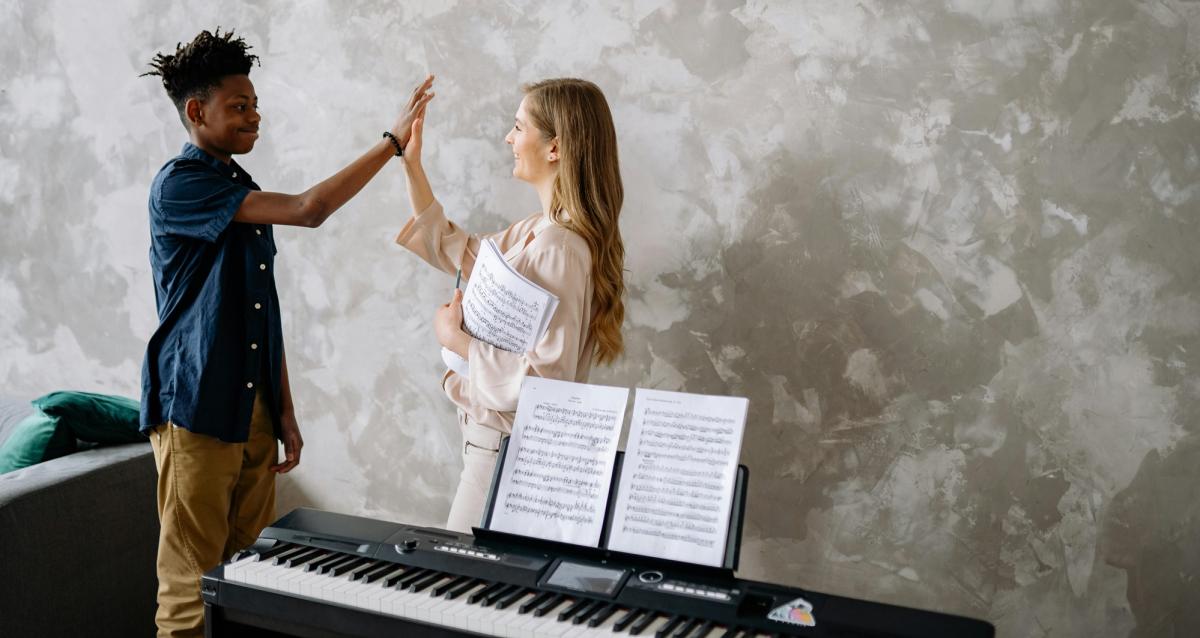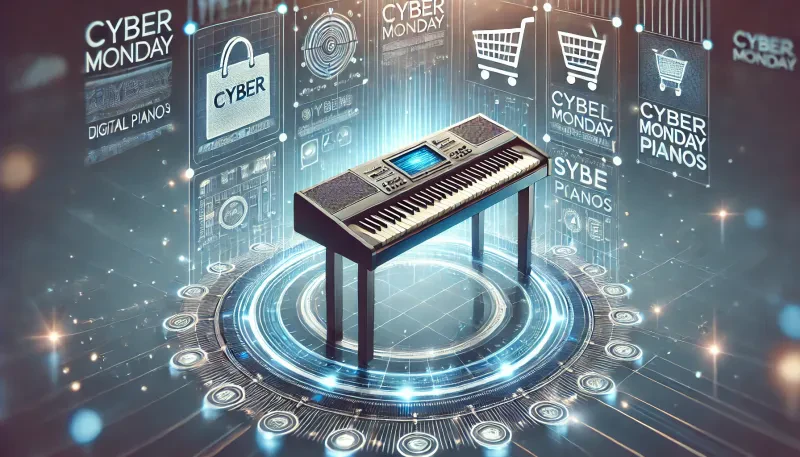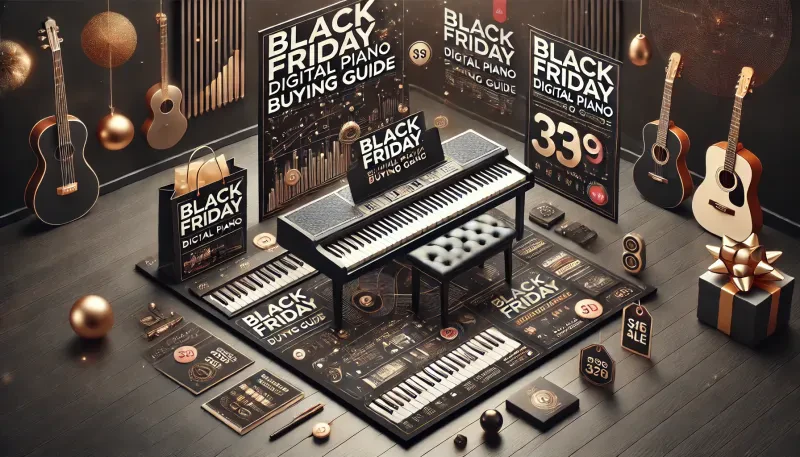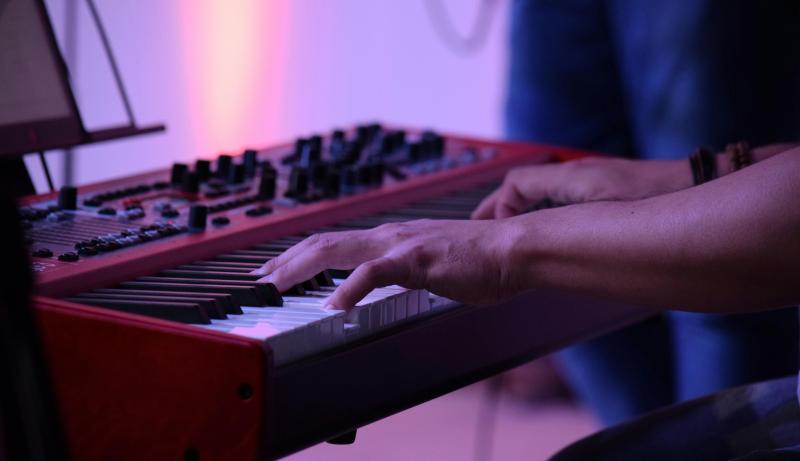Choosing the right digital piano for a child can significantly impact their musical journey. The ideal instrument should be engaging enough to maintain their interest while providing the essential features needed for proper piano education. We've carefully evaluated numerous options to help parents make an informed decision that will support their child's musical development.
Why Digital Pianos Are Great for Children
Digital pianos offer several advantages for young learners:
- Volume control for quiet practice
- Built-in learning features and games
- No tuning required
- More affordable than acoustic pianos
- Portable and space-efficient
- Multiple sound options to keep practice interesting
Key Features to Consider for Young Players
Essential Features
- Appropriate key size and weight
- Durability for long-term use
- Built-in learning tools
- Clear sound quality
- Simple, intuitive controls
- Affordable price point
Our Top Recommendations for Young Pianists
1. Yamaha P45: Best Overall for Young Students
The Yamaha P45 88-Key Digital Piano stands out as an excellent choice for children serious about learning piano. Its Graded Hammer Standard (GHS) keyboard provides a gentler touch in the higher keys while maintaining a slightly heavier feel in the lower register - perfect for developing proper finger strength. The straightforward interface prevents distractions, allowing young players to focus on learning.
2. Casio CDP-S160: Perfect for Beginners
The Casio CDP-S160 Digital Piano Bundle offers an impressive package for young learners. Its scaled hammer action keyboard is slightly lighter than some competitors, making it easier for small hands to manage. The included learning features and song library provide excellent educational resources, while the bundle includes essential accessories for getting started.
3. Roland GO-88P Bundle: Most Interactive Learning Features
The Roland GO-88P Bundle excels in making learning fun for children. With its engaging interface and comprehensive learning features, it keeps young players motivated. The piano connects to educational apps, providing an interactive learning experience that today's tech-savvy kids appreciate.
4. Donner DEP-10: Budget-Friendly Quality
The Donner DEP-10 Digital Piano offers excellent value for parents wanting to test their child's interest in piano without a major investment. Despite its affordable price point, it provides weighted keys and good sound quality, making it suitable for beginners developing proper technique.
5. Amazon Basics DP-882: Most Affordable Starter Option
The Amazon Basics DP-882 88-Key Digital Piano provides a cost-effective entry point for young beginners. While it may not have all the premium features of higher-end models, it offers the essential functions needed to start learning piano fundamentals.
Important Considerations for Children's Pianos
Key Action and Size
Children's smaller hands require special consideration when it comes to key action:
- Look for slightly lighter touch sensitivity
- Ensure full-size keys for proper technique development
- Consider adjustable touch response settings
- Avoid overly heavy key action that might cause fatigue
Learning Features and Technology
Modern digital pianos often include features that enhance the learning experience:
- Built-in metronome for rhythm development
- Recording function for self-evaluation
- Lesson modes and practice songs
- Duet mode for playing with teachers
- App connectivity for interactive learning
Durability and Safety
When choosing a piano for children, consider these practical aspects:
- Sturdy construction to withstand regular use
- Stable stand or base
- Easy-to-clean surfaces
- Proper voltage protection
- Cable management features
Setting Up for Success
Creating the Right Practice Environment
To maximize your child's learning experience:
- Position the piano at an appropriate height
- Ensure proper lighting
- Create a dedicated practice space
- Keep the area free from distractions
- Make sure power outlets are easily accessible but safe
Establishing a Practice Routine
Help your child develop good practice habits:
- Set regular practice times
- Start with shorter sessions for younger children
- Use the piano's features to make practice fun
- Incorporate duet playing when possible
- Utilize recording features for motivation
Maintenance and Care
Teaching children to care for their instrument is an important part of their musical education:
- Regular cleaning of keys and surfaces
- Proper power down procedures
- Careful handling of cables and connections
- Use of dust covers when not in use
- Regular checking of all functions
Conclusion
Investing in a suitable digital piano can set the foundation for a lifetime of musical enjoyment for your child. While models like the Yamaha P45 and Casio CDP-S160 offer excellent all-around features for serious students, budget-conscious options like the Donner DEP-10 and Amazon Basics DP-882 provide good starting points for beginners. Consider your child's age, interest level, and your budget when making the final decision.
Remember that the best digital piano for your child is one that they'll enjoy playing and that will grow with them as they develop their skills. Focus on finding a balance between quality, features, and price that works for your situation. With the right instrument and proper support, your child will have everything they need to begin their exciting journey into the world of music.



